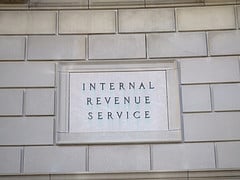
Ask a small business owner to describe what makes their business tick and most of the time they can answer this question with superb detail and enthusiasm. Now ask this same, passionate, small business owner to describe their overall tax strategy and most likely you’ll hear silence.
Of course this silence is not a mystery. Most small business owners wear at least five hats to begin with when operating their business and their tax and finance hat is usually not one of their favorites. That’s all too understandable, but here’s why it's important to have a tax strategy for your business.
Like any business owner, if you’re profitable, (or even if you’re not) paying taxes is going to be one of your major expenses - many times one of your largest. As a former practicing tax accountant, I wish I could say the tax code is fair and you’re operating on a level playing field. That’s not the case. The deck is stacked against the little guy/gal and until there’s actual and real tax reform, it’s going to stay that way.
Lowering Your Odds of an IRS Audit
Because the tax code is so complicated, most small business owners opt to file a Schedule C - Sole Proprietor return. And because most small business owners in general tend not to be the best record keepers, the IRS loves to audit Schedule C filers. Even if you did everything right and assuming you have nothing to hide, an IRS audit distracts you from your business at hand and very often causes high anxiety and stress.
I’m a big fan of operating your business as an S corporation. It’s not for everyone, that’s for sure. But if you haven’t had a CPA or financial planner run a tax comparison of what business entity would be most optimal to operate your business or practice, I highly suggest you have this analysis done prior to the end of the year.
Very few S corporation tax returns filed each year are audited. In recent years, the audit rate has been 0.40% annually. That’s the kind of odds a tax accountant loves. How does this compare to other business entities audit chances?
• Partnerships: 0.40
• C Corporations: 1%
• Individual’s filing Schedule C: 1.17%
Although statistically there doesn’t appear to be a big difference between an S corporation audit risk and a Schedule C filer - the difference is night and day. With the IRS eagerly on the pursuit for fees and income, becoming a tax savvy small business owner is more important than ever.
data source: TurboTax
photo by saturnism


